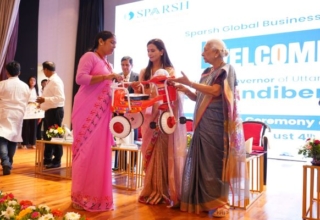
The Right to Education Forum (RTE Forum) through a memorandum to the Prime Minister, has appealed to the Government to take a dozen of necessary steps to ensure the rights of children during this crisis period. Coinciding with the completion of 10 years of landmark Right to Education Act, the forum said that Government must guarantee food and nutrition to millions of its children to protect their lives. Ambarish Rai, national convener of the Forum, reminded that this Act is derived from Article 21 of the Indian constitution, ensuring the Right to Life of every citizen.
Requesting food security for children, the Forum appealed to ensure smooth implementation of the notification for home-delivery of mid-day meals and the SC suo moto order for providing nutritional food for children and lactating mothers through the Anganwadi centres on an urgent basis. “The mid-day meal can include either dry rations or cooked meals. All Anganwadi and ASHA workers and personnel supplying mid-day meals must be declared as essential workers, and provisions be made for their safety (including protective equipment and hazard pay) and means of public transportation to reach the delivery points/households on a regular basis,” the Forum suggested in its memorandum.
“It’s a very challenging period for the whole country and impacts everyone, especially the elderly, the very young, street dwellers, informal sector workers and marginalised sections who have suddenly lost their livelihood in the wake of the lockdown. Children on the streets and from marginalised sections are particularly affected. Children of street dwellers and from the informal sector workers are also suffering as their parents are deprived of income. This is creating challenges for children in terms of availability of food, clothing, shelter and other essential requirements. Also, there are long term consequences as a result of loss of access to education,” the Forum said in its memorandum submitted to the Prime Minister.
“Enforce orders for ensuring uninterrupted supply of food to students residing in residential schools and hostels. Vast network of schools and associated bodies like School Management Committees can be activated enabling right to food and other support to children in and out of school,” said Ambarish Rai, National Convenor of RTE Forum.
The Forum further said, “In coordination with the Ministry of Women & Child Development, ensure uninterrupted health services, especially for the malnourished children, to prevent adverse health conditions during this period. All adolescent girls should continue receiving sanitary napkins, IFA and supplementary nutrition under SABLA and RKSK or under the Integrated Child Development Scheme (ICDS) or School Health Program.”
The memorandum calls upon the government to take all necessary steps including identification of children at risk of violence and abuse as a result of the lockdown. Helplines and other child safety protection measures should be declared essential services and kept open during the close down. Make members of village level Child Protection Committee responsible for tracking children at risk, especially girls who are vulnerable to early marriage or trafficking. In case they encounter anything unusual, they must inform Childline or Police or the local Child Welfare Committee if risk is identified. Schools must be instructed to track all enrolled children especially girls once normalcy returns to ensure that no child drops out.
The memorandum appealed to promote all school children of elementary standards without examination, as decided by the states of Uttar Pradesh, Gujarat, Punjab, Tamil Nadu and Maharashtra among others, in line with the provisions of ‘No Detention Policy’ in the RTE Act.
“With several private schools moving to online teaching, children admitted under economically weaker section quota find themselves on the wrong side of the digital divide. Several states have also started using ICT for instruction in government schools as well. Low tech means of delivering education should be followed to avoid leaving children from poor families behind,” the Forum added in its memorandum.







